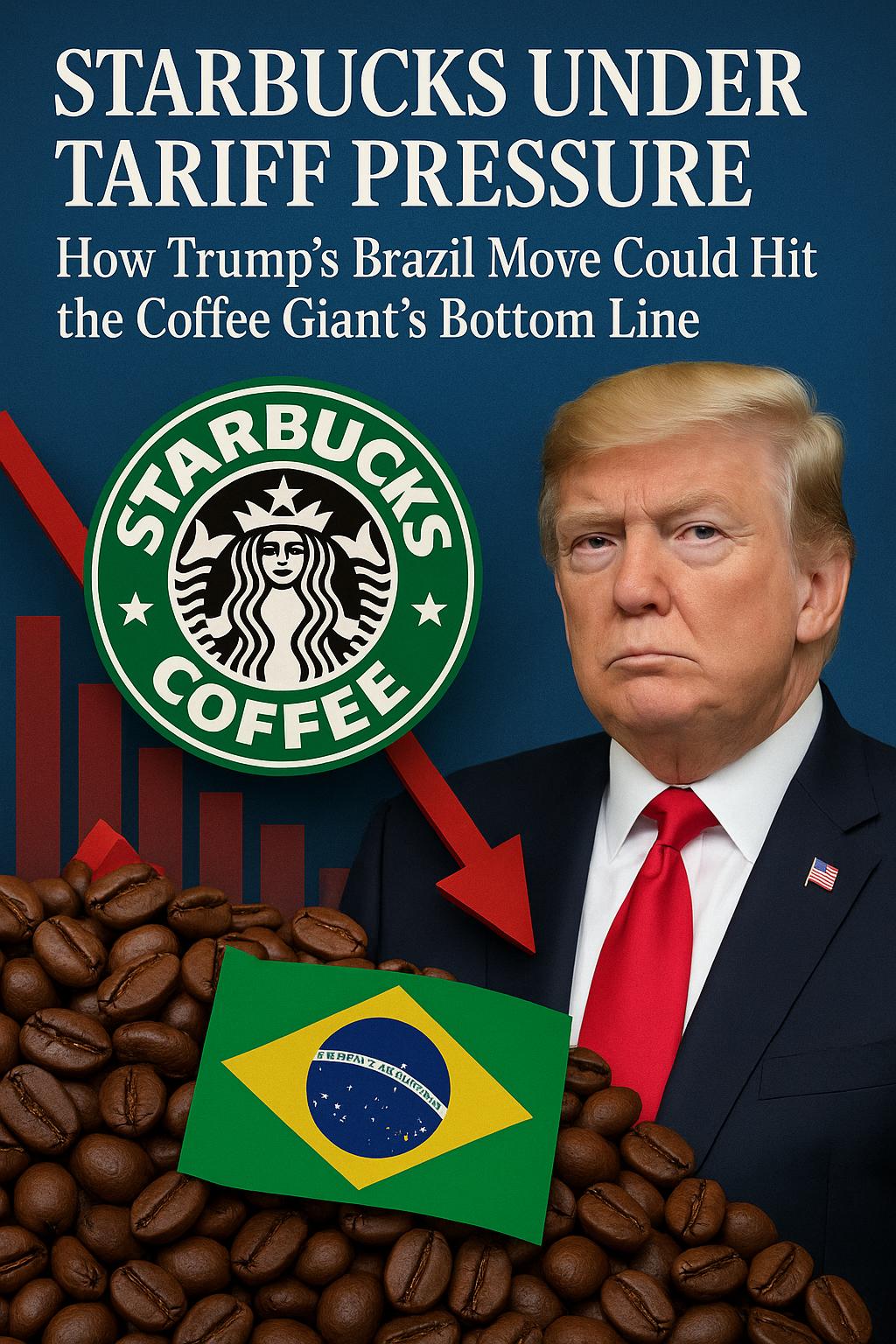Starbucks shares may be heading into volatile territory as Donald Trump’s proposed tariffs on Brazilian imports threaten to disrupt one of the company’s most critical supply chains—coffee. With Brazil accounting for nearly one-third of all coffee beans imported to the United States, a proposed 50% levy on Brazilian goods would not just be symbolic—it would be seismic for companies like Starbucks, which rely on a steady, affordable bean supply to power both retail operations and consumer-packaged goods.

The market is already reacting. Coffee futures have surged nearly 25% in recent days, anticipating what many traders believe will be a supply shock if the tariffs go into effect as early as August 1. Analysts at TD Cowen estimate that Starbucks could take a 1.4% hit to earnings, primarily through a 0.5% increase in North American cost of goods sold. That kind of pressure on margins could knock 0.8% off adjusted EBITDA, with an additional 0.6% earnings drag expected from rising costs in the company’s retail channel. Those may seem like small numbers at first glance, but for a stock already under pressure from broader consumer headwinds and discretionary spending slowdowns, this is the kind of incremental cost burden that investors can’t ignore.
Starbucks isn’t standing still. Over the past several quarters, the company has strategically diversified its sourcing strategy to mitigate exposure to specific geopolitical risks. Coffee is notoriously volatile, and Starbucks has long operated hedging programs to lock in prices ahead of such events. It’s also notable that the company has not raised prices in direct response to these pressures—at least not yet. Management appears committed to absorbing cost increases through operational efficiencies and procurement agility, especially as consumer tolerance for price hikes remains thin.
Still, the broader picture looks tense. Brazil has hinted at retaliation, and if the tariff conflict escalates beyond coffee to include other categories like orange juice, sugar, or ethanol, the economic stakes will intensify. Meanwhile, the U.S. roaster market may face a scramble to reroute supply from Colombia, Central America, or even Africa—regions with more limited capacity to meet sudden surges in U.S. demand. For Starbucks, this means higher transportation costs, longer lead times, and more strain on an already delicate supply chain ecosystem.
Investors should brace for turbulence. While the long-term brand strength and global diversification of Starbucks offer some protection, its near-term earnings could suffer from margin compression if tariffs are enforced. On the other hand, if negotiations lead to exemptions or a rollback of the tariff threat, Starbucks shares could rebound sharply, buoyed by relief across the consumer discretionary sector.
At its current trading level around $95, the stock remains a bellwether for consumer trends and global trade flows. But for now, the price of a latte may soon depend more on politics than on demand.